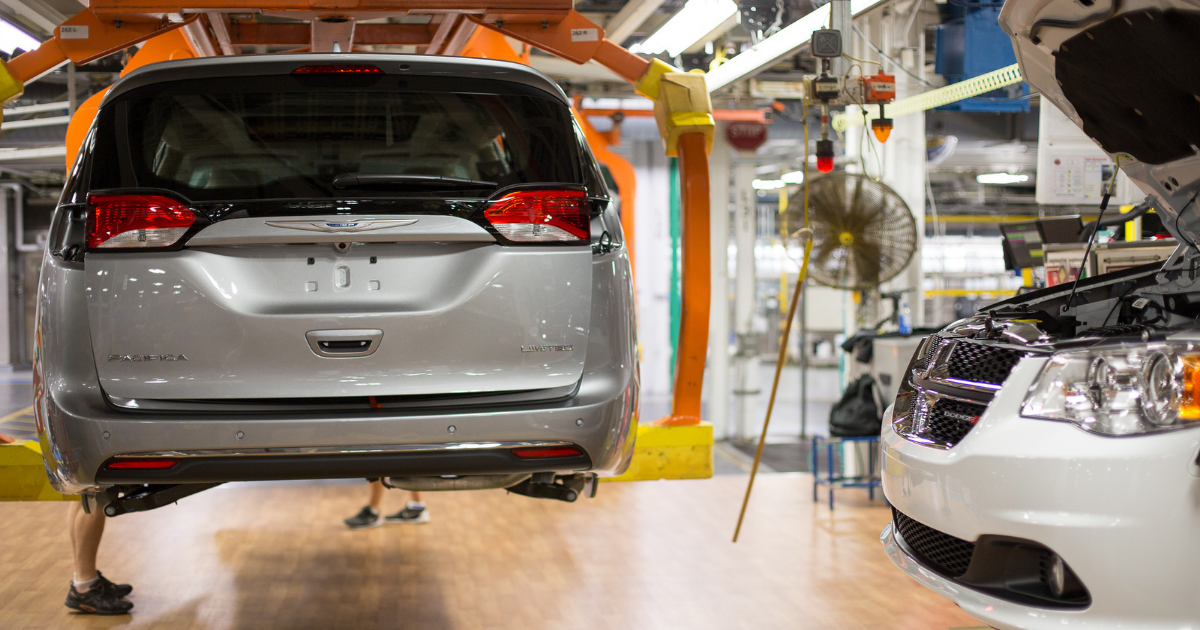With new tariffs on Canadian-produced vehicles imported to the United States having gone into effect at 12:01 AM April 3, Stellantis has announced that it will be idling factories in Canada and Mexico for several weeks and laying off hundreds of American plant workers as well. This comes on the back of a dire first quarter for the automotive giant. It has been predicted for several weeks that the Trump administration’s so-called reciprocal tariffs would be the end of some car models in the U.S. market. They may be dire for the Chrysler brand and its one remaining product, the Windsor, Canada-produced Pacifica van.
“Immediate actions we must take include temporarily pausing production at some of our Canadian and Mexican assembly plants, which will have an impact to several of our U.S. powertrain and stamping facilities that support those operations,” Stellantis Canada said in a statement to Automotive News Canada. “We will be temporarily pausing production at the Windsor Assembly Plant for two weeks (the weeks of April 7 and 14) with operations resuming the week of April 21.”
Chrysler has been on the ropes for the last couple of years, with dwindling product lines and corresponding decreased sales volume. As of right now the Chrysler brand produces and sells just the Pacifica, which is built across the Northern border and will be subject to the newly-introduced tariffs.
While the plant is currently scheduled for a short two-week shutdown, Stellantis has said that it will continue to evaluate tariffs and the market to determine a long-term plan of action.
“Stellantis continues to assess the effects of the recently announced U.S. tariffs on imported vehicles and will continue to engage with the U.S. administration on these policy changes,” the company said in a statement.
Chrysler shifted over 100,000 Pacificas across 2024, but sales were down 11% over the previous year and continue to trend downward. The van has been sold relatively unchanged since it was introduced in 2017. The pricey van starts at $42,450 in a pre-tariff economy. If the 25% auto tariffs push the Pacifica to an uncompetitive price, or Chrysler can’t turn enough profit as a result, it seems entirely possible that Stellantis would cancel the program a few years ahead of schedule.
Without the Pacifica on dealer showroom floors, and with no other product to take its place, it seems likely to me that Chrysler won’t survive the next couple of fiscal years. Perhaps the company can quickly churn out a badge-engineered American-made model to keep it floating along. It’s the uncertainty of these tariffs and how the market will respond that has everyone feeling uneasy, including Stellantis.

